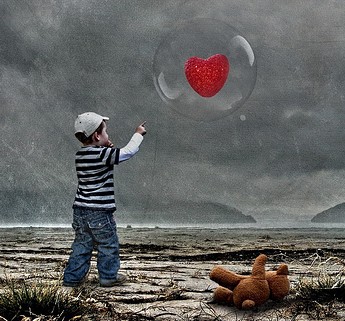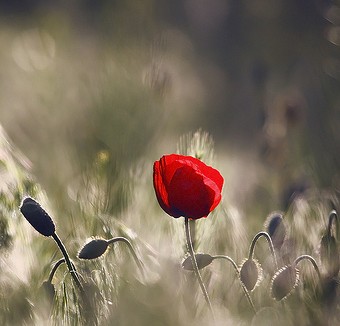How to Put Passion into Your Writing
I’m reprinting a post I wrote years ago because, well, it bears repeating!
When you read a novel and you sense the passion behind the story, what does that look like? Do you ever start reading a book and feel it’s flat and formulaic, like the writer wrote it in his sleep? At very least, you can’t imagined he cared much for his story, or stayed up late nights writing because of the excitement coursing through his veins.
I often quote a particular line from a movie (I think it was Rich and Famous, so if you know the source and I’m wrong, please enlighten me!) that has stuck with me through my decades of novel writing: “If your writing doesn’t keep you up nights, it won’t keep anyone else up either.”
I think the highest compliments a writer can get (and the ones I love the most regarding my own novels) are when readers remark that they stayed up all night reading the writer’s novel, unable to put it down.
That’s not implying your writing should be keeping you up because you just can’t make it work or you are stuck or it’s just plain terrible. What I feel that line means is the writer is so passionate about the story he is telling that he can’t stop thinking about it, and he can’t sleep because he just has to put on the page all the wondrous words that are aching to get out. Or something like that.
Can we write like that every moment we sit down at the computer and dig into our story?
Not likely. I think you’d have to be some kind of manic maniac to be able to rev up with that kind of enthusiasm every time. But I do imagine there are some writers who come close. Is that something we should aim for? I’m going to say no, because I think the emotional and energetic side, to put it one way, doesn’t always serve us best. There are times when we have to get quiet and think. Or not think. Times we have to problem-solve and talk to ourselves, untangle tight knots in our plot (or back).
So maybe passion doesn’t look like excitement all the time. Passion can also look like dedication, persistence, patience, meditation. To me, it has many faces. But the result . . . that’s the key.
So What Does Passion Look Like?
So what does passion look like in writing? These are some of the things I notice in books that scream passion:
- A delight in the language. Maybe it’s just me, because I love words and playing with language. I love a beautiful turn of phrase. I can tell when a writer really loves words, and delights in crafting sentences that are perfect. Amateur writers and writers lacking passion tend to lean more toward the cookie-cutter or formula-type way of structuring sentences and scenes (and plots). The writing may be functional, sufficient, well-crafted, but it all lies on the surface, like a sheen. There is no depth. I know—a lot of best sellers are like this, and a lot of readers want those kinds of books. They’re not looking for passion. To me it’s kind of like the difference between fast food that fills you up momentarily and a classy meal that really satisfies (and the memory of that meal lingers).
- A delight in rich characters. As writers, I feel, we should be fascinated by people. Humans are complex, contradictory, confusing, erratic, surprising, hilarious, vicious—and the list goes on. Writers should capture the human condition in all its weirdness. So, passionate writing loathes stereotyped characters. If you are passionate about your characters, they will come alive and pop off the page. They’ll do and say odd or crazy things that might even surprise you. You will delight in delving into both their good and dark sides, and you’ll feel compassion for even your most evil antagonist. I might venture to say that I can tell when a novelist really loves her characters and has infused her passion for them, which manifests in the things they do and say, and transcends the nuts and bolts of the plot.
- A delight in storytelling. I mentioned this in my last posts. When you read a riveting story, you can sense the writer is enthralled in the story herself. She’s not just plunking down the words she thinks will fit nicely, they way you might work a jigsaw puzzle. She’s enamored with the process of telling the story, perhaps in the way humans have told stories from the dawn of time, the simple intent of connecting to a reader or listener and getting them just as excited about the story. Passion, to me, is having a story to tell and the pressing desire to share that story so others can be moved by it.
Passion may not be why you write. Writers write for various reasons, and many of those reasons are valid and not to be judged. I have friends who pump out novels using formulaic structure, and they are not a bit passionate. They are making a decent living by what they do, they support their families, and they are perfectly happy doing this.
I think that’s terrific . . . for them. And it may be terrific for you as well. Writing, like many other vocations, can be just a skill or a job, and perhaps this type of writer is just as happy and fulfilled as the “passionate” writer. There is a need in many marketplaces for skilled, nonpassionate writing, and someone has to do it. (Think of all those computer tech manuals!)
But someone also needs to write those passionate stories for the readers waiting for such novels. And maybe you are one of those writers.
If you want to be one, you need to stir up your passion for words, for your characters, and for storytelling itself. You need to push away all those encroaching voices within and without that pull you away from your passionate core.
What gets you passionate about writing? For me, it’s often reading a great chapter in a great book. I get fired up. Share in the comments what gets you sparked to write!
 Speaking of passion, I just rereleased my novel Someone to Blame, a 10th anniversary edition. After getting my rights back from Zondervan, I had a new, better cover created. This novel won the Zondervan First Novel Contest in 2009, and it opened the door for many more of my novels to get published.
Speaking of passion, I just rereleased my novel Someone to Blame, a 10th anniversary edition. After getting my rights back from Zondervan, I had a new, better cover created. This novel won the Zondervan First Novel Contest in 2009, and it opened the door for many more of my novels to get published.
Passion about the topic got me exploring blame. How we blame others, blame ourselves, and what blame does to our joy, our relationships, and our feelings about ourselves.
I hope you’ll check out this powerful relational drama! My deep, hurting, complex characters captured me and I hope you’ll find this journey into blame enlightening and inspiring (yes, it does have a hopeful ending!).
Presently the book is only available as a Kindle ebook. Get your copy HERE.












I love it when that all-fired-up feeling hits. You’re right, it’s not every day. But when I have it, the story just flows and I can’t type fast enough. I don’t know what it is specifically that triggers the feeling. Maybe I’m just in the right frame of mind. Maybe I’ve come up with an awesome idea and have to get it out of my head. Maybe the stars aligned just right that day. Whatever it is, I wish it could happen every day.